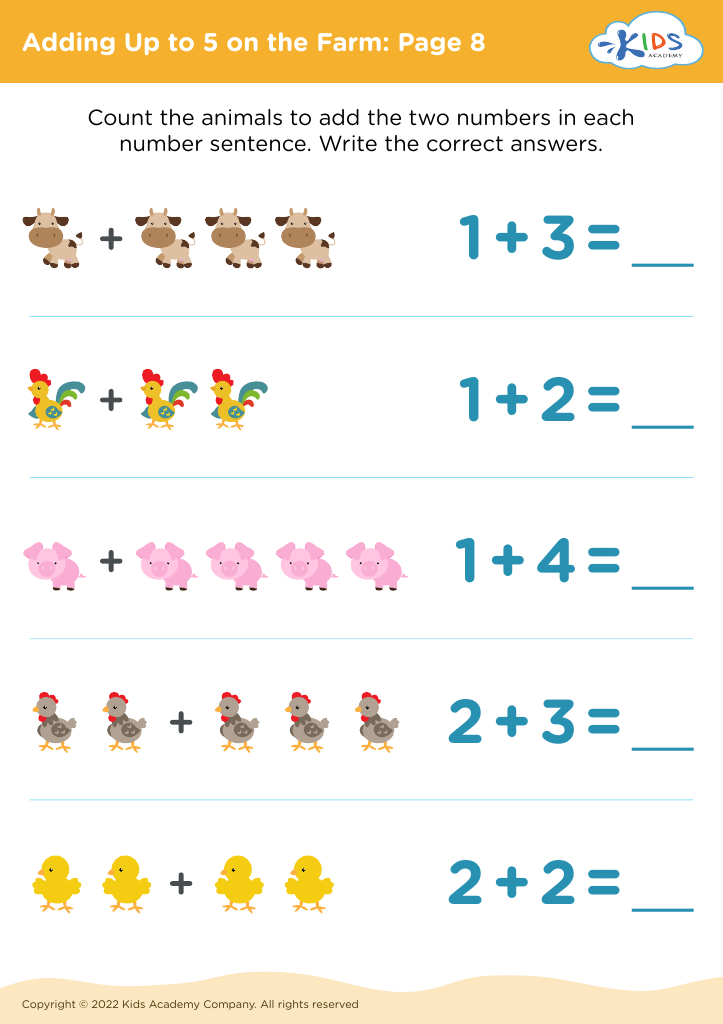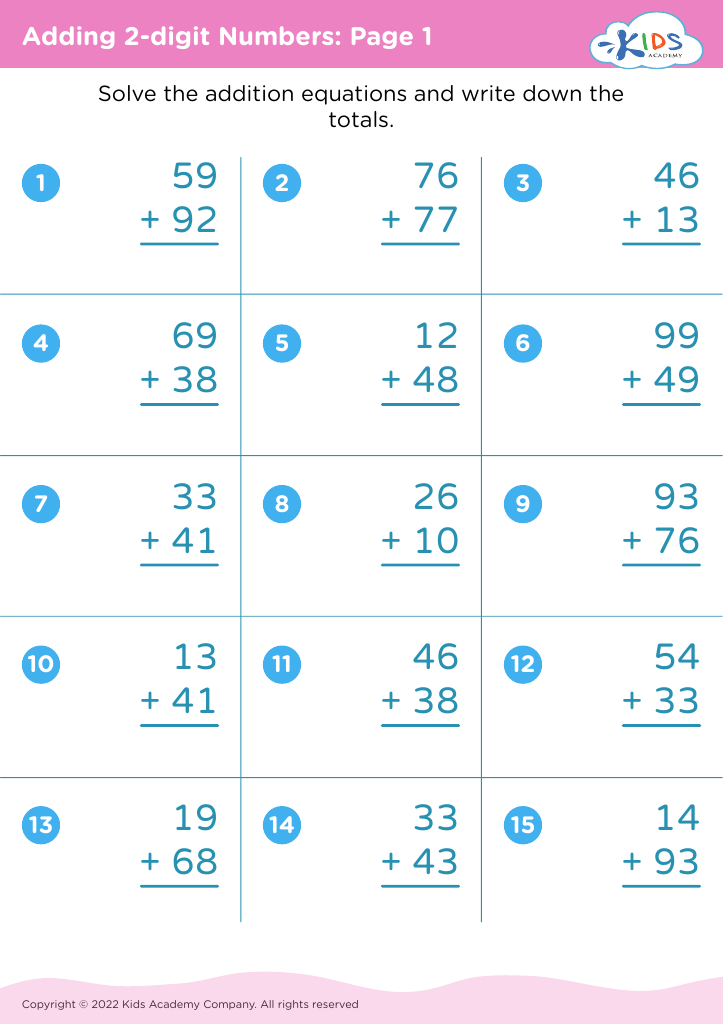Developing counting skills Addition & Subtraction Worksheets for Ages 3-7
3 filtered results
-
From - To
Welcome to our engaging collection of "Developing Counting Skills: Addition & Subtraction Worksheets" designed specifically for children aged 3-7! These interactive resources help young learners build a strong foundation in basic math through fun and playful activities. Our worksheets encourage counting, simple addition, and subtraction, enabling kids to develop their numerical skills alongside cognitive growth. With colorful visuals and creative exercises, your child will enjoy discovering the world of mathematics. Foster a love for learning and prepare your little ones for future success with our carefully crafted worksheets! Perfect for parents and educators alike, making learning both enjoyable and effective.
Developing counting skills and fundamental operations like addition and subtraction between the ages of 3-7 is crucial for children's cognitive development and academic readiness. During these formative years, children build a strong mathematical foundation that shapes their future understanding of more complex concepts. Counting provides children with the ability to recognize numbers, understand quantities, and develop a sense of one-to-one correspondence, which is essential for everyday problem-solving.
Early exposure to addition and subtraction fosters critical thinking and promotes number sense. These skills nurture not only mathematical knowledge but also boost confidence as children learn to approach problems systematically. Furthermore, engaging in play-based activities that incorporate these skills allows for meaningful learning experiences, making mathematics enjoyable.
Parents and teachers play a vital role in this development by creating supportive environments where counting, adding, and subtracting can be practiced in various contexts, such as through games or everyday situations. By focusing on these skills early on, we prepare children to tackle higher-level math as they progress in their education, paving the way for lifelong learning and success. Ultimately, investing time in developing these skills can lead to improved academic performance and a positive attitude toward mathematics as they grow.



















